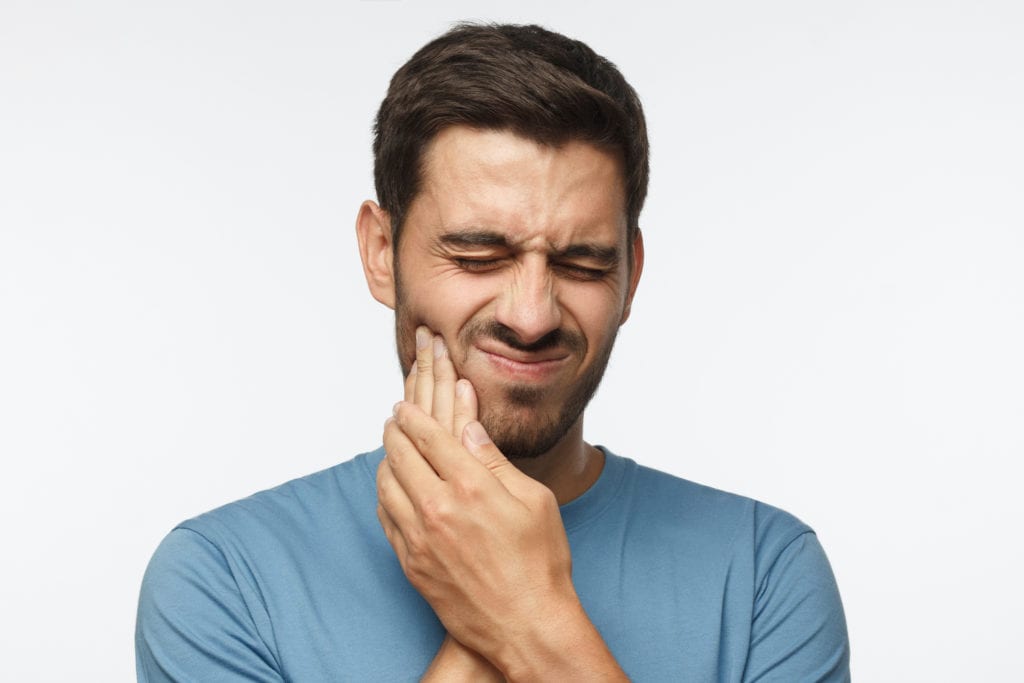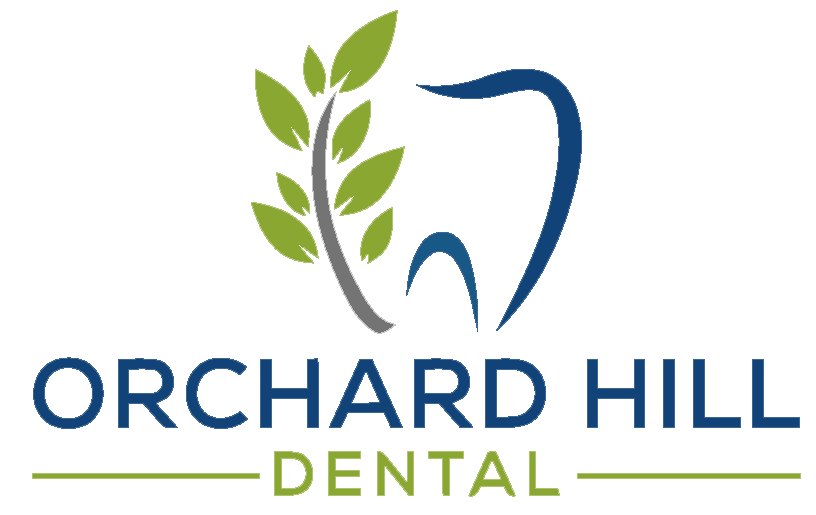Many people may not realize they are grinding their teeth because bruxism is a dental concern often occurs unconsciously. That is why it is key to visit the dentist and get treatment earlier rather than later. Symptoms like irritated nerves and facial pain may be short-term, but weakened tooth enamel occurs over time with increased tension. Teeth can wear down greatly over time.
Dr. Jessica Christy of Orchard Hill Dental provides oral appliance therapy to stop teeth from grinding and causing more damage. Visit your dentist in Hendersonville, NC for comprehensive teeth grinding treatment today.

Signs of Bruxism
If you have noticed any of these symptoms, call our office immediately. Depending on the severity of the condition, you may need multiple treatments to not only stop bruxism but to restore damaged teeth:
- Chronic headaches
- Jaw pain
- Teeth clenching
- Tooth sensitivity
- Facial pain
- Muscle tenderness
- Worn teeth
Clenching or grinding teeth increases pressure on teeth as well, and its pressure is 40 times stronger than the pressure exerted from normal chewing. During sleep, the pressure of teeth grinding is not alleviated, so those who have problems with night bruxism may have weakened gums and teeth while being unaware of the problem. If this problem is left untreated, bruxism can cause severe damage to teeth, jaw muscles, and joints.
Treating Teeth Grinding
Dr. Christy provides treatment with a custom night guard or a mouthguard that can be worn at night. If you find that you clench and grind your teeth more during the day, this night guard can also be worn in the daytime. Oral appliances act like mouth guards and prevent teeth from grinding together. They also take the pressure off of the jaw and allow teeth to properly align.
After receiving treatment with oral appliances, some patients may need restorative treatment due to worn or damaged teeth. If teeth have been worn down or damaged due to bruxism, you can receive dental crowns to protect teeth from further wear and tear. Dental crowns also preserve the tooth structure for a more balanced bite.
Bruxism FAQs
Bruxism is a debilitating condition that can break down oral structures. Learn more by reading the answers to these commonly asked questions.
How do you calm down bruxism?
To calm down bruxism (teeth grinding), try reducing stress through relaxation techniques like meditation, deep breathing, or yoga. Wearing a custom nightguard can protect your teeth while you sleep, preventing damage. Limiting caffeine and alcohol, especially before bed, may also help, as these can trigger grinding.
How does bruxism affect sleep?
Bruxism can significantly disrupt sleep quality for both the person grinding their teeth and their sleep partner. Grinding or clenching can lead to frequent awakenings, resulting in daytime fatigue and irritability. People with bruxism may not realize they are grinding their teeth during the night, but they often wake up feeling sore or with headaches. Improving sleep hygiene and addressing bruxism can lead to better overall rest.
What vitamin deficiency causes teeth grinding?
Being deficient in calcium and magnesium can cause teeth grinding. Patients can correct this deficiency by eating a well-balanced diet rich in calcium and magnesium and taking vitamin supplements. If the deficiency is severe, your general physician can prescribe other medications to help.
Can bruxism be cured?
Bruxism, or teeth grinding, cannot always be fully cured but can be effectively managed. Stress reduction, wearing a nightguard, and addressing underlying causes like sleep disorders or misaligned teeth can help reduce symptoms. Some people may experience relief as they make lifestyle changes or undergo dental treatments. Regular check-ups with a dentist are important to monitor and manage the condition.
Can bruxism cause tooth infection?
Bruxism can contribute to tooth problems but doesn’t directly cause infections. However, constant grinding can wear down tooth enamel, leading to cracks or chips that may expose the tooth’s inner layers. When this happens, bacteria can enter and potentially cause an infection. If left untreated, the damage from bruxism may increase the risk of tooth decay and gum issues, which could lead to infection. Regular dental check-ups are important to catch and treat any damage early.
What happens if bruxism is left untreated?
If bruxism is left untreated, it can lead to several dental and health issues. Constant grinding can wear down the tooth enamel, causing cracks, chips, or tooth fractures. Ovxer time, this can lead to tooth sensitivity, pain, and an increased risk of decay or infection. Bruxism can also strain the jaw muscles, potentially causing jaw pain, headaches, and temporomandibular joint (TMJ) disorders. Addressing the condition early can help prevent these complications.
Request a consultation today! Stop teeth grinding at the source. Call Orchard Hill Dental at (828) 247-7001 or schedule an appointment at our Hendersonville, NC dental office on our website.
